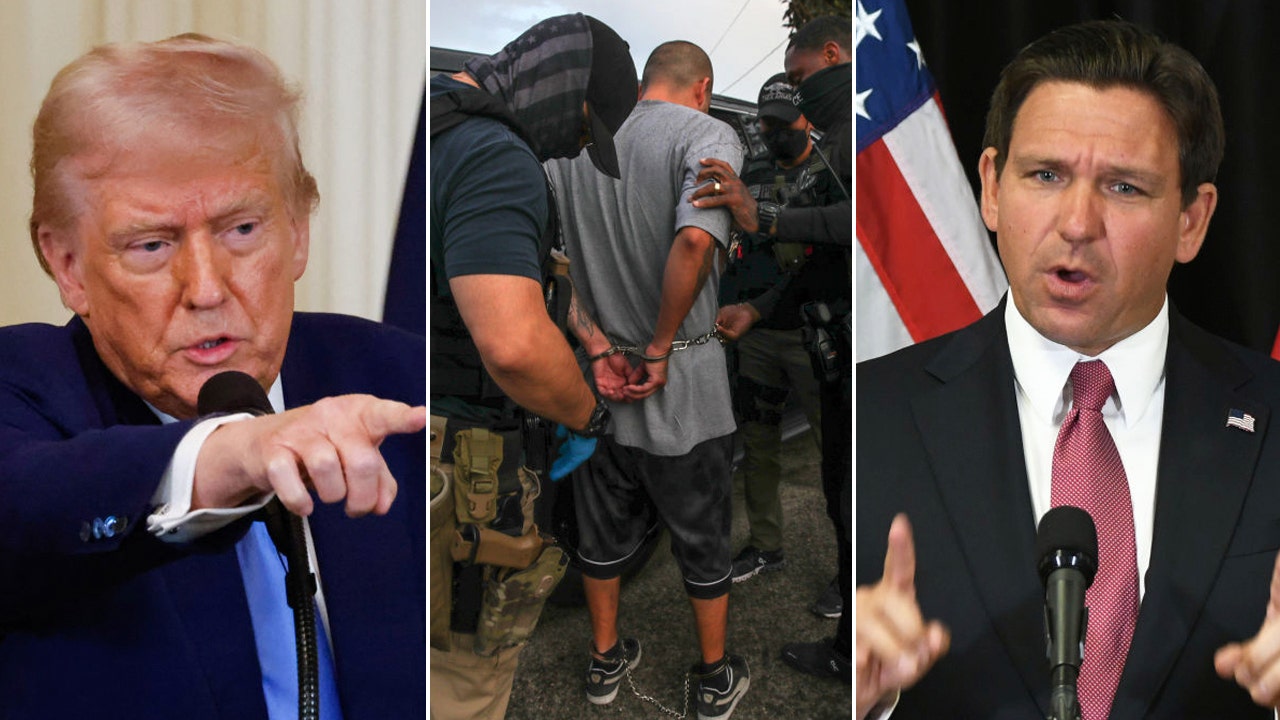States, including Florida, step up to help Trump admin with deportations

Several states are joining forces with the Trump administration to assist in the arrest and deportation of illegal immigrants. Republican states are pushing back against so-called “sanctuary” jurisdictions that resist these efforts. The Florida Sheriff’s Association recently announced that all 67 counties in Florida have entered into 287(g) agreements, allowing Immigration and Customs Enforcement (ICE) to delegate immigration functions to state and local law enforcement agencies.
In addition to the county jails, Governor Ron DeSantis revealed that other state agencies, such as the Florida Highway Patrol and the Florida Department of Law Enforcement, have also entered into these agreements. The goal is to collaborate with the federal government to address the illegal immigration crisis in the country.
President Trump signed an executive order in January to green-light new 287(g) agreements, which come in three forms: jail enforcement, task force, and warrant service officer programs. These agreements enable state and local authorities to assist in identifying, arresting, and serving warrants and detainers on foreign-born individuals charged with criminal offenses.
As of this week, ICE has established agreements with 60 law enforcement agencies in 16 states for jail enforcement, 80 agencies in 12 states for warrant service, and 15 agencies in six states for task force operations. While many agreements were signed during the first Trump administration, new agreements have been inked in 2025 in Florida, Idaho, Nevada, Texas, Kansas, and Oklahoma.
There are pending applications from additional local agencies in states like Georgia, Maryland, New York, Texas, and Wyoming, according to ICE. Kansas and Oklahoma have also announced partnerships with ICE to enhance their efforts in removing dangerous criminals and gang members from their communities.
These agreements demonstrate the commitment of states to collaborate with the federal government in enforcing immigration laws and addressing public safety concerns. By working together, law enforcement agencies aim to keep communities safe and uphold the rule of law. This stands in contrast to sanctuary jurisdictions that limit or prohibit cooperation with ICE, prompting legal action from the Trump administration.
The willingness of states to assist in the administration’s crackdown on illegal immigration signals a shift in enforcement priorities. By leveraging resources and expertise at the state and local levels, authorities are taking proactive steps to address immigration challenges and protect their communities.




